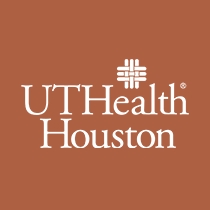Postdoctoral Research Fellow - Neurology (Neurocognitive)
- 📁
- Post Doctoral Research Fellow
- 📅
- 250000BW Requisition #
- 📅
- Feb 19, 2025 Post Date
Minimum Education:
Doctoral/Terminal Degree
Physical Requirements:
Exerts up to 20 pounds of force occasionally and/or up to 10 pounds frequently and/or a negligible amount constantly to move objects.
Security Sensitive:
This job class may contain positions that are security sensitive and thereby subject to the provisions of Texas Education Code § 51.215
Residency Requirement:
Employees must permanently reside and work in the State of Texas.
If you are looking for a great healthcare career in Houston, visit http://go.uth.edu/careers!

University of Texas Health Science Center at Houston (UTHealth)
Established in 1972 by The University of Texas System Board of Regents, The University of Texas Health Science Center at Houston (UTHealth) is Houston’s Health University and Texas’ resource for health care education, innovation, scientific discovery and excellence in patient care. The most comprehensive academic health center in the UT System and the U.S. Gulf Coast region, UTHealth Houston is home to schools of biomedical informatics, biomedical sciences, dentistry, nursing and public health and the John P. and Kathrine G. McGovern Medical School. UTHealth Houston includes The University of Texas Harris County Psychiatric Center, as well as the growing clinical practices UT Physicians, UT Dentists and UT Health Services. The university’s primary teaching hospitals are Memorial Hermann-Texas Medical Center, Children’s Memorial Hermann Hospital and Harris Health Lyndon B. Johnson Hospital.
UTHealth Benefits
UTHealth Houston offers a comprehensive and competitive benefits package. For more information on our benefits programs please refer to the UTHealth Houston Office of Benefits Website.
Equal Employment Opportunity Statement
UTHealth Houston is committed to providing equal opportunity in all employment-related activities without regard to race, color, religion, sex, sexual orientation, national origin, age, disability, genetic information, gender identity or expression, veteran status or any other basis prohibited by law or university policy. Reasonable accommodation, based on disability or religious observances, will be considered in accordance with applicable law and UTHealth Houston policy. The University maintains affirmative action programs with respect to women, minorities, individuals with disabilities, and eligible veterans in accordance with applicable law.
UTHealth Houston has adopted a policy consistent with CMS regulations to protect our patients and university community from exposure to COVID-19. This policy affects all employees, residents, fellows, students, contractors, new hires, visiting scholars program participants, adjunct faculty, and volunteers who work, train, or collaborate at the John S. Dunn Behavioral Science Center.
In addition, all UTHealth Houston employees who are assigned to work at a location that is subject to the affiliated partner’s hospital, clinical offices, or agency are required to abide by UTHealth’s Houston rules and regulations, as well as the affiliate’s rules and regulations, including COVID-19 vaccination and safety requirements.
Work location is based on the needs of the department and may be adjusted.


